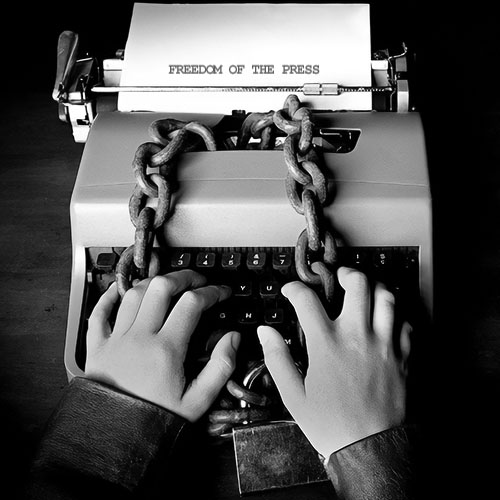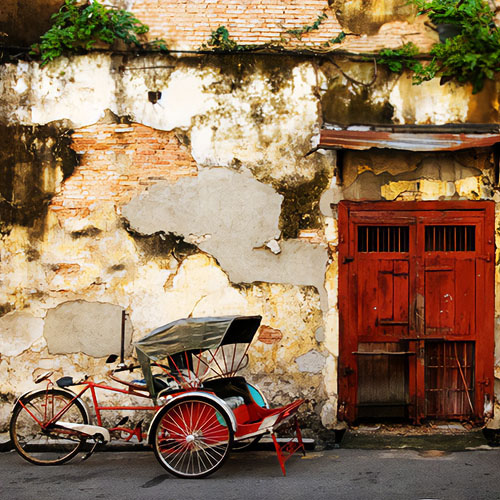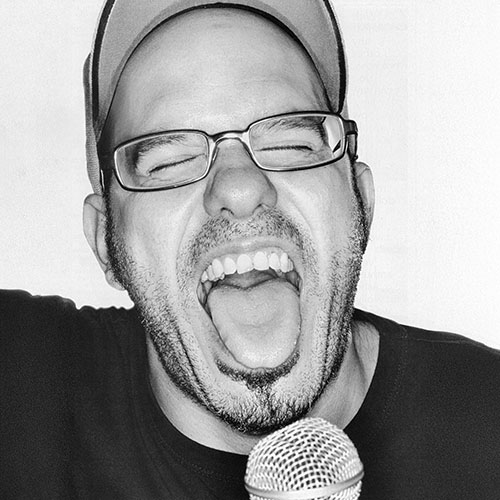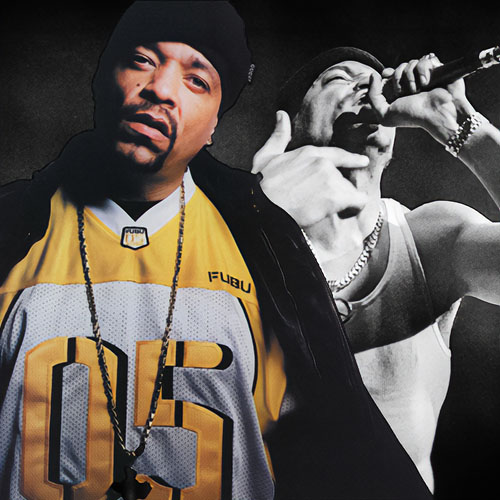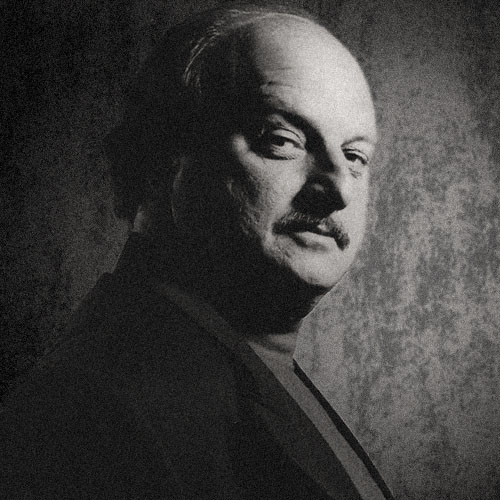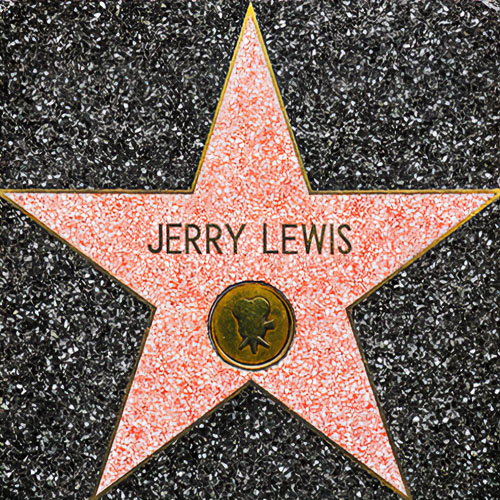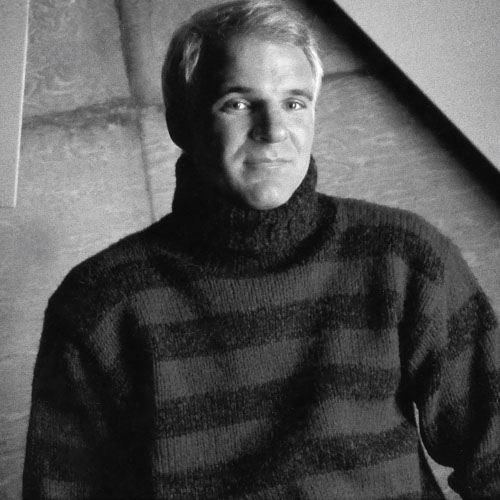Henry Rollins, 39 the singer of the former punk group Black Flag, is one of the hardest-working people in show business today.
Penthouse “Sounds” with Henry Rollins
An actor, author, and a highly sought-after voice-over talent, the often-opinionated wordsmith has been using a number of speaking dates to take a rest (or, as he puts it, a “poor man’s therapeutic break”) from the tedious rehearsal sessions for the world tour to promote the most recent Rollins Band album, Get Some Go Again (DreamWorks Records).
The heavily tattooed and extremely buff Rollins — born Henry Garfield in Washington, D.C. — seems to have outgrown the music industry. He has been the force behind Rollins Band for more than ten years, and in 1994 he won the Best Spoken Word Grammy for his album Get in the Van: On the Road With Black Flag, One of ten spoken-word albums the singer has released. The former teenage ice-cream-store shift manager is also a successful businessman. His publishing company, 2.13.61 — developed in the mid-eighties to provide white Rollins calls “an alternative to what in my opinion is a very mediocre contemporary culture” — has put out print, music, and video releases. Not bad for a guy who spent most of the eighties getting harassed by the police and spat at by fans.
You come across as being so complex. How would you describe yourself to someone who knows nothing about you or your work?
[Pauses] I don’t think that I’m very complex. I just do a lot of stuff. Am I supposed to describe myself in a word or something?
Take as long as your like.
I guess I would describe myself as a workaholic. I like to keep busy every day, seven days a week.
You came onto the music scene in 1980 when you became singer for Black Flag, possibly the greatest American punk band ever. Are you surprised that in the nineties punk made a comeback?
I don’t know much about the classifications. For me, personally… this may sound generic, but it’s all rock ’n’ roll to me. It’s the spirit of Iggy [Pop], Chuck Berry, and Jerry Lee Lewis. Rock ‘n’ roll is the same thing that Black Flag was trying to do. It’s all about just going out there and expressing yourself. So I think that there is always room for something that is fresh or trying to stand up and be different. I think that’s why punk rock is popular.
I take it then that you’re pleased with the current music scene?
When I hear what’s considered punk rock these days, it just doesn’t do a whole lot for me because it’s a little lightweight. I’m used to something that’s a bit more deadly and destruction-oriented.
It’s no secret that it’s all about the money. With that in mind, is it impossible for rock ‘n’ roll during the nineties not be remembered as being hypocritical?
I think all music has a bit of hypocrisy in it because everyone is borrowing riffs from one another. John Lennon, Mick Jagger, and all the rest of those guys all used blues riffs to do their thin. But these days all the good riffs have been taken. There are only so many ways you can put notes together.
Are there any bands now that you respect?
Sure, there are lots of bands that I think are really good. I like pretty much anything the Beastie Boys do, and I’ll pay attention to anything Frank Black does. There are a number of bands I listen to.
Since Black Flag split up in 1986, you’ve done very well for yourself. Was the end of Black Flag a rebirth for you?
Well, my life changed very much after Black Flag. It seemed all of a sudden I was pretty much on my own. I had to form my own band and take care of my own affairs. I didn’t have and management, either. I was living in this little room with a phone, saying to myself, “okay, make it happen.” I just got very lean, mean, and low to the ground, and very determined.
Speaking of getting lean and mean, you’ve transformed yourself from a skinny long-haired guy into a muscle-bound warrior of sorts. Is the motivation behind your training something more than vanity?
I’ve always been in a very good shape because the shows demanded it. I started putting on muscle mass in the last five years or so just because… I don’t know, the gym is just a nice place to go. I don’t work out for vanity. The kind of workout I do doesn’t give you a bodybuilder physique. I do mostly power lifting, which just gives you bulk. So I look more like a construction worker than somebody trying to be Arnold Schwarzenegger. I think those guys are a joke.
I just happen to have a lot of energy, so at the end of the day it’s good for me to expend myself at a gym. I really like it. Also, when I tour I’m at a very intense stress level, so I have to train like an athlete. That’s why I go for a heavy, bulk-oriented type of training program along with a really hard, aerobic, cardiovascular kind of workout. That’s why I’m in the gym about two and a half hours a night, four nights a week.
With your touring schedule, how do you find the time?
As soon as band practice is over, I just go right to the gym, stay till about eleven, then go home and go to sleep. The next day, I start the whole thing up again. That’s what I do.
Here’s a semi serious question: Will there ever be a Henry Rollins workout video?
No. As far as all that goes, I’m around more to learn than to instruct. I couldn’t add anything to it. There are so many people who weigh 50 pounds less than me but can lift two times what I do. [Laughs] I wouldn’t be a good example.
The German philosopher Friedrich Nietzsche wrote, “What fails to kill me only serves to make me stronger. “Do you subscribe to that same school of thought?
I subscribe to that one-liner. I don’t subscribe to a lot of things that Nietzsche said. I read a lot of Nietzsche, and a lot of it I don’t understand, and that which I do understand, I don’t agree with all of it. But what I do agree with, I think is some pretty good stuff.
I’ve heard that you practice the Bushido samurai code of conduct, which is “Do not attach, to anything or anyone.” Is that true?
I try. I mean I don’t like having close personal relationships with people. The relationships I do have are business oriented. There are a lot of people I like and respect, but I’m not close to people outside my band. Most of the people I know are signed to my label or they get a percentage of what I’m making or I produce them or play music with them.
That seems kind of sad.
Um… well, there is nothing really in my life that’s sad. [Laughs] I mean, you shouldn’t feel sorry for me.
Are you capable of falling in love with somebody?
That’s a good question. Sometimes I think I’m a bit too cynical, and I really like being alone. I like the freedom of getting up and going where I want, when I want, without having to consult anybody.
Do you consider yourself a loner?
Yeah, for the most part. I like being with people sometimes, but I find myself usually avoiding evenings out. When somebody asks if I want to go out, my knee-jerk reaction is usually no. I like doing things alone.
Do you have any desire to have children one day?
No.
Why?
I’m thinking that it might be nice at age 50 to be able to go out and have a lot of freedom and be able to read and listen to music and not have to get up at six in the morning because the kid needs something. I think all of that is very nice; it’s just not for me.
Beavis and Butt-head once described your extraordinarily thick neck as the key to how you get laid. Any truth to that theory?
I don’t know if it’s my neck that gets that happening for me. It might be other parts of my anatomy… like my brain.
Historically, many creative and talented rock stars have also been very self-destructive. You, on the other hand, come across more like a Rambo whose only will is to survive.
I think a lot of people like to see rock ‘n’ rollers or movie stars, whoever the hell they are, die. I hate that. I hate when people look at Shannon Hoon [the lead singer of Blind Melon, who died of a drug overdose] and say, “See, I told ya! All those rock ‘n’ rollers are like that.” It’s too easy. I always swore to myself that I’m not going out like that.
Speaking of Shannon Hoon, I read that you thought it was cool when he gave away his gold record because he thought gold records were bullshit.
Yeah, he gave his gold record to a friend of mine.
Why did Hoon’s death have such a long-lasting effect on you?
It really upset me. It depressed me because I liked him, [but] it didn’t even matter if I didn’t like him. It’s horrible to lose somebody like that. And on the bigger political picture, it just gives all corny Christian people and all these right-wing fuckers a chance to say, “See, we were right and you were wrong! Now you need to let us have more access to your lives because you need to be policed more.”
Now, I’m not some totally straight guy slapping drugs out of people’s hands, but [his death was] just horrible. I mean, he had a kid. What the fuck is up with that? It’s just very depressing. I always think that when we lose somebody to drugs or alcohol that we lose them to the evil machine. You know, that dark force that cranks out this stuff year after year. It’s just such a waste.
Not to dwell on solemn subjects, but in your book See a Grown Man Cry: Now Watch Him Die, you relive the tragic murder of your best friend, Joe Cole [who was fatally shot in Rollins’s presence when the two were mugged in 1991]. Have you ever come to terms with Joe’s death?
Yeah. I mean, he’s dead. I don’t really talk about it anymore. When it first happened, I talked about it a lot in my spoken-word shows. But I only like to talk about things that are happening currently. If I cranked out the same stuff every year, I would fall asleep up there. But I do think about him all the time. Sometimes it’s very frustrating because these strangers just came in and fucked with somebody’s life. On a bigger picture, when I think about him I always think about his mother. She didn’t need this. She’s a very good person and she lost her son. I lost a friend, but she lost her son. And I have no idea what that’s like.
Did the police ever catch the guys who killed Joe?
No.
Do you think about who the killers are and what they could be doing now?
Oh, yeah, I always think about them. I think that they are breathing somewhere around here.
Many of the punk-rock heroes of the 1970s and 1980s are in their late thirties and forties. How difficult is it to grow up yet still remain instrumental in an industry that is so youth-oriented?
Well, I don’t consider myself part of the industry. I just do my own thing. If you want to go to the gig, go. If you don’t, don’t. I’m 39; in ten years I’ll be 49, if I’m still alive. Age doesn’t matter to me. Most of the musicians that I admire weren’t even interesting until they were thirtysomething.
You’ve released many bodies of work in many different forms. Do you consider yourself a poet, a singer, a philosopher, or an actor?
I just kind of do my thing. It just comes out of me, and I use different forms of media to get it out. I don’t really consider myself anything. I’m a jackass of all trades.
I remember I once read somewhere that you admire Oliver Stone. What is it about him you admire?
I like him, and I’ve hung out with him a few times, but even though I don’t agree with everything he says, I still admire his fury. I like his rage. He’s a very angry man.
The nineties are likely to be remembered for their many shocking scandals and tragedies. What does that say for modern-day society?
We are attracted to that which is infamous. Bonnie and Clyde were folk heroes because they said “fuck you” to the man. While they were robbing banks, people applauded them as they left. People loved Al Capone because he hated the government and the government hated and feared him. That’s why people who would never join a militia unit are secret fans of the militia, because they love the idea of a federal agent going on someone’s property and getting his ass shot off. Even I think there is something in that. “You think you are going to come on my property? I don’t think so. I’ll shoot your ass. Get the fuck out of here, government man!” To me there is something very attractive about that.
A rumor surfaced a few years ago that a particular muscle-bound and tattooed singer was gay Although many fingers were pointed in your direction, you denied that the singer was you. Does it upset you that some people might think you’re gay?
I called up my press agent about it because all my friends were calling. I asked, “So what’s up with this press conference that I’m doing where I announce that I’m coming out of the closet?” and my press agent said, “Isn’t this great!” And I went, “What’s great about it?” She said, “It means you’re getting famous. All famous people are gay for six to 12 months.”
What bugged me about it was that I know it was aimed at me to be insulting and to try to hurt me, and I don’t think that I’m anyone that you would want to hurt. I’m one of the good guys. But as far as people thinking I’m gay, well, I’m not, if that’s any help.
You remind me of that Seinfeld episode in which a college-newspaper reporter accuses Jerry’s character of being gay.
I saw that show. I had to laugh when he said after each time he denied being gay, “Not that there’s anything wrong with it!” I really felt that way. I mean, you should be able to stick your dick into anything you want. The topic really bores me, because everybody is just trying to get off. Some guys like guys, and some like girls. Whatever the combination is, it all works. But as far as somebody saying, “Oh, your style is the bad style,’’ I have a problem with that.
Finally, everybody has a vice. What’s yours?
I sometimes procrastinate, and I like coffee.

















